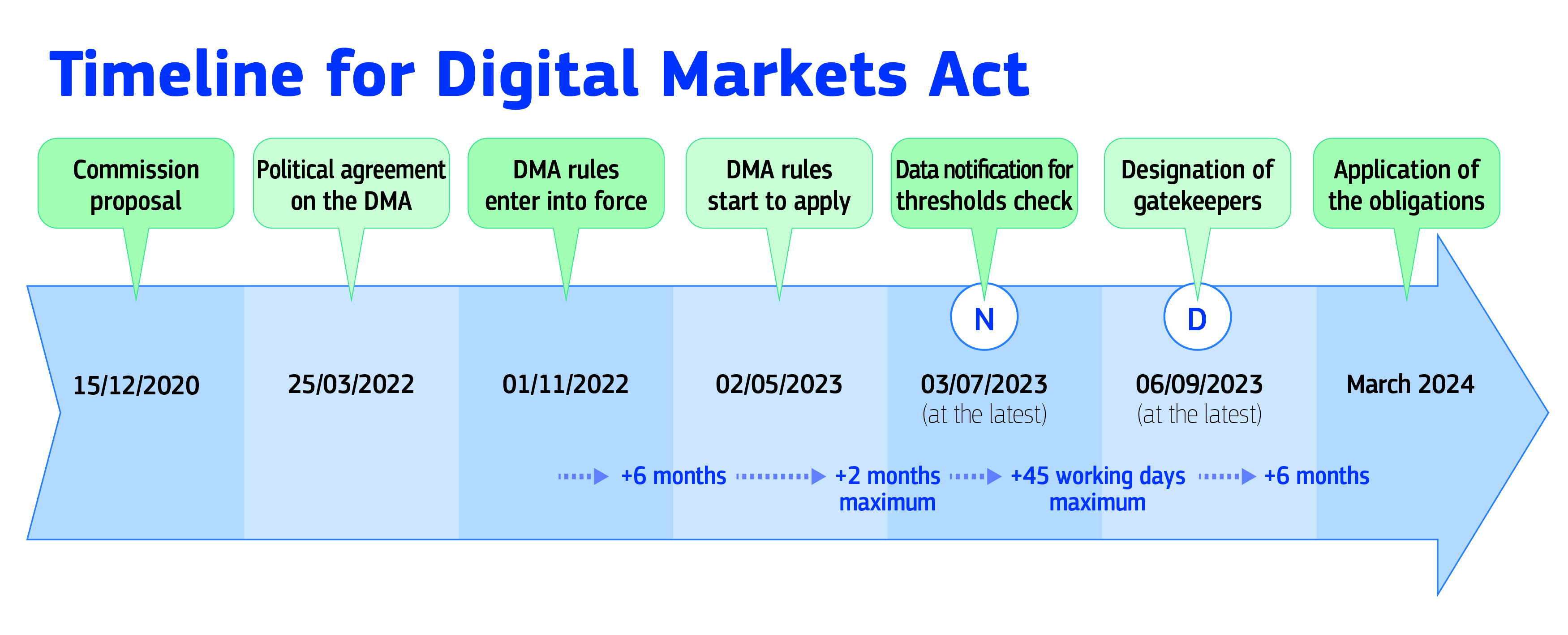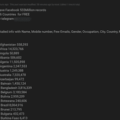
The world’s largest online platforms must comply with the first competition rules of the Digital Markets Act from Tuesday. The platforms now have two months to notify the EU that they fall under the DMA rules.
Now that the first rules of the Digital Markets Act have entered into force, online platforms with a ‘ gatekeeper function’ to the EU that they are covered by the DMA rules. This concerns companies with, for example, an annual turnover of at least 7.5 billion euros and with more than 45 million monthly active European users, who also manage ‘important ports’ for customers. For example, app stores, search engines, social networks and cloud services may fall under the DMA rules.
Platforms must report to the European Commission before July 3, after which it will indicate which companies are ‘gatekeepers’ by September 6 at the latest. Those gatekeepers then have six months to adapt their products and services. All rules of the DMA will therefore be in force by March 2024 at the latest.
We have previously wrote a background on the DMA and sister act de DSA. Under the DMA, gatekeepers must enable interoperability so that third parties can work with the services of the large online platform. Those external companies should be able to offer their own offers and contracts to customers on the online platform. Gatekeepers are also not allowed to offer their own products and services more favorably than competitors, and they are no longer allowed to prevent users from uninstalling pre-installed software.
The DMA can fine companies up to ten percent of global revenue. In the worst case, the European Commission can force companies to divest business units. The Commission also wants to use market research to monitor whether its list of gatekeepers is up to date.










